The world of Dune, initially conceived by Frank Herbert and expanded over the years through books, film, TV, and video games, is a vast one. The Imperium is ruled by House Corrino, but the scheming of other Houses like Richese and Harkonnen keep the rulers on their toes. Meanwhile, the desolate desert planet Arrakis remains a key figure due to the production of valuable spice. Dune: Prophecy, a new series from HBO, gives viewers a look into that universe 10,000 years prior to the events of the original Dune.
Dune: Prophecy is a highly political, twist-filled show that balances many factions and their conflicting schemes and goals. Game Rant had the chance to speak with producer and writer Alison Schapker as well as several actors involved in Dune: Prophecy’s imperial scheming: Jodhi May (Empress Natalya Corrino), Josh Heuston (Constantine Corrino, the Emperor’s illegitimate son), and Chris Mason (royal swordmaster Kieran Atreides.) They discussed political trickery, navigating the changing Imperium, the status of relationships among the imperial family, and the looming specter of Arrakis and its valuable spice. This transcript has been edited for clarity and brevity.
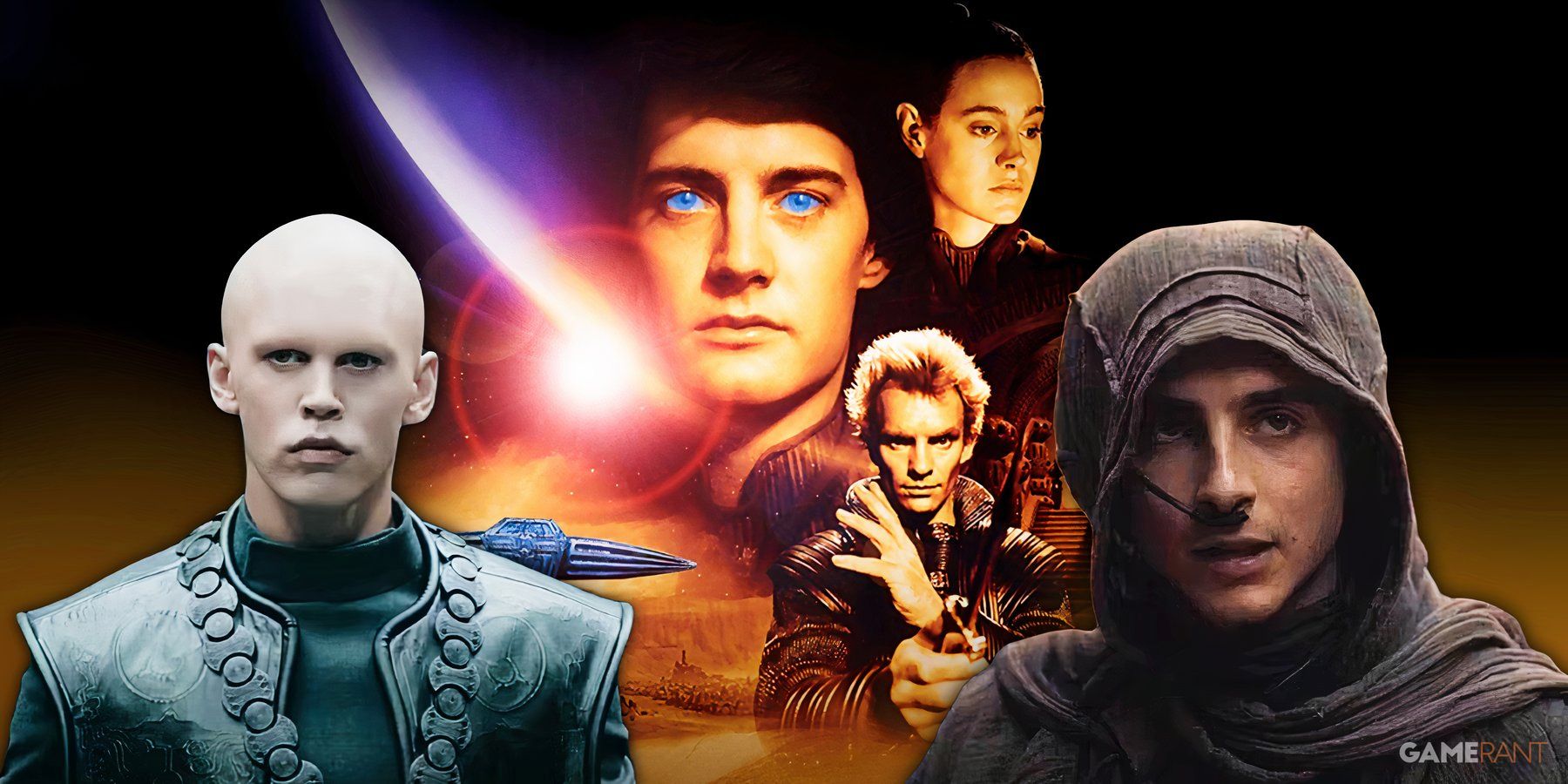
Related
David Lynch’s Dune Does Many Things Better Than Denis Villeneuve’s Version
The 1984 film is a bold, if flawed, take on the story, focusing more on the imperial grandeur and politics of the universe than the newer versions.
Empress Natalya Corrino Rules Alongside Her Husband
In the original Dune, the Imperium is ruled by the aging, ailing Shaddam Corrino, who refuses to allow the women in his life – whether wives or daughters – to hold any power. Dune: Prophecy paints a very different picture with Empress Natalya Corrino, played by Jodhi May who is no stranger to bringing powerful women to life, particularly in her previous role as Queen Calanthe in Netflix’s The Witcher. Ruling alongside her husband, Natalya is a confident schemer, although the events of the series drive a wedge between her and her husband, Emperor Javicco, as he turns away from her advice and begins trusting in potentially dangerous advisors.
Q: We are introduced to Empress Natalya and Emperor Javicco a while into their marriage. What would you say their marriage is like at the start of Dune: Prophecy? Is there still affection, or does she see him as a tool, something to manipulate?
May: What you see is a marriage that was founded on love. Absolutely, certainly, this is something that was there, but for Natalya, there’s a real sense of disappointment and disillusionment with Javicco. It’s almost like a shared project or partnership that has not gone in the direction that she wanted it to go in, and I think there are all sorts of really fascinating tones in there.
You know, maybe, a little bit of the Romanovs – this royal family where there’s a kind of over-dependency on a Rasputin character, who, for Natalya, is represented a little bit by Sister Kasha. So there’s a real sense of frustration for Natalya about not being able to have a sense of agency or a shared project that she originally thought this marriage was going to be about. But I don’t think her husband is necessarily a tool. I think he’s just someone who needs to be negotiated – let’s put it that way.
Q: Natalya is such a composed, politically focused figure – but Princess Ynez has this wild child side. Do you think she gets any of that from Natalya? Do you think there was ever a wilder Natalya that we didn’t get to see?
May: That’s a really interesting idea. I think that there’s something, really, in the way in which Natalya is so true to herself. I would absolutely like to think that she is someone who maybe did have a past that was wilder than where she finds herself now. I think that opens up a really interesting question of how much is going to be revealed about Ynez and how we see the evolution of her character and the relationship between mother and daughter. Maybe there is a world in which she herself was a bit of a rebel. I think what’s interesting to see is the way in which Natalya’s character develops through the course of the season. Without giving you any spoilers, there is absolutely a form of rebellion.
Constantine Corrino Is Princess Ynez’s Protector
Another interesting dynamic in Dune: Prophecy’s House Corrino is the relationship between Princess Ynez, Javicco’s officially recognized heir, and Constantine, his illegitimate son. Despite their very differing positions, Constantine, a suave playboy embodied by Josh Heuston, is fanatically devoted to “Nez,” standing at her side as she makes difficult decisions and begins establishing herself as a player on the political field.
Q: The relationship between Constantine and Ynez – or “Nez” as he calls her – is fascinating, because she’s the legitimate heir, Constantine is illegitimate, but they still have this really close friendship. How are they able to keep this relationship despite their different situations?
Heuston: I think Constantine has unconditional love for Nez. They went through something super traumatic as children, and that cemented the trust and the value that they have for one another. For him, the cornerstone of his being is basically just making sure she’s safe and that he can look after her.
She’s the one true person, I think, who sees Constantine for who he actually is. For him and the way he operates in the universe, it’s basically Nez first, and everything else comes second. He tries to live up to that and make sure she’s equipped and able to take the throne. I don’t think he sees it as a position of “he wishes he could have that.” He’s just happy that she’s able to succeed. That’s why he’s so likable.
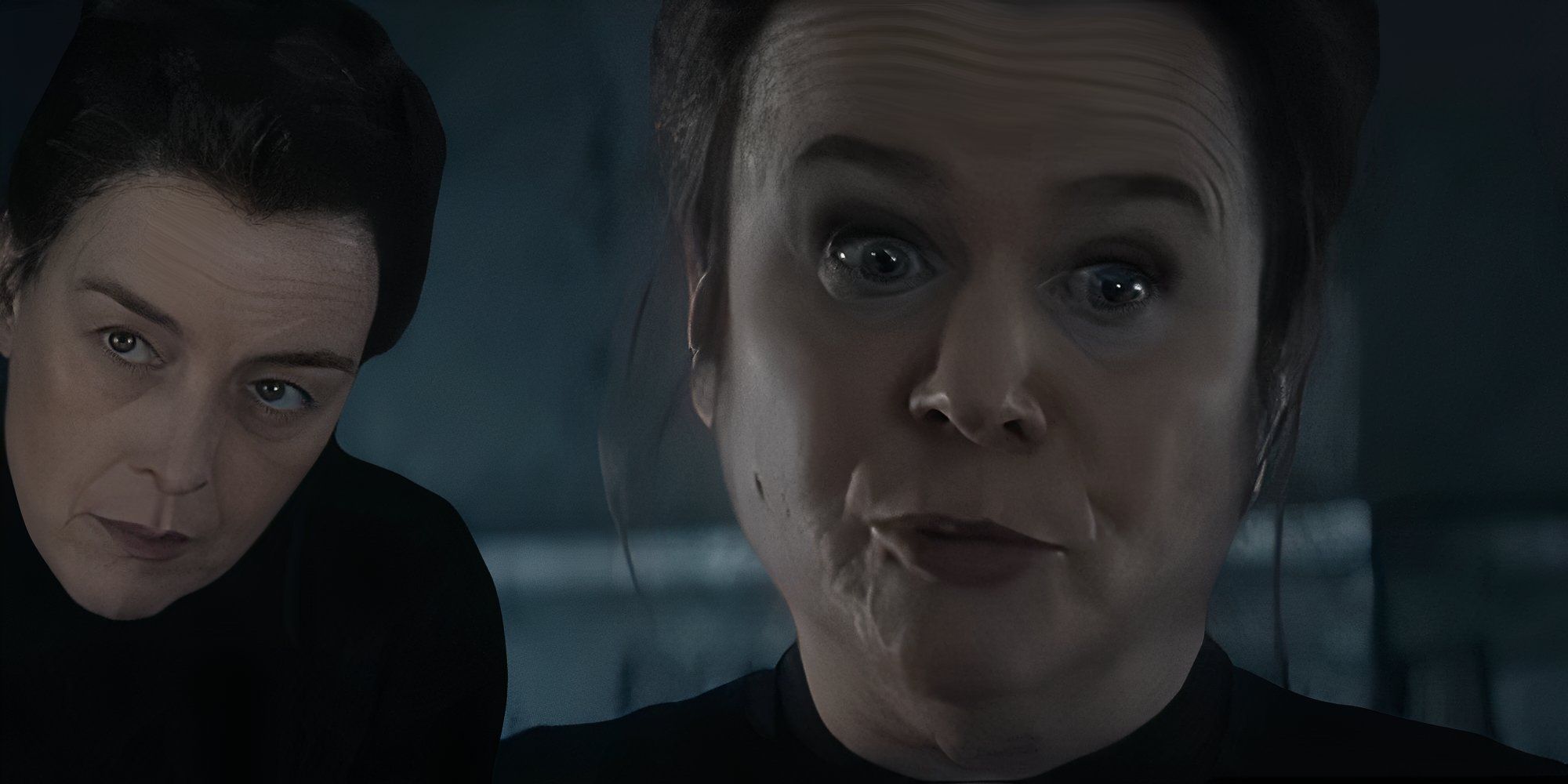
Related
Dune: Prophecy: Who Are The Harkonnen Sisters?
The Harkonnen sisters will lead the Max Original series, Dune: Prophecy, but how?
House Atreides And The Planet Arrakis Play Very Different Roles In The Story
The story of the original Dune novel kicks off when House Atreides is given control over Arrakis, the only planet in the Imperium to produce the valuable spice melange. In Dune: Prophecy, however, both House Atreides and Arrakis itself are in very different positions. The central Atreides character, royal swordmaster Keiran (Chris Mason), is not a powerful political figure like Paul or Leto, but someone with a seemingly small role in the Imperial court who has greatly conflicting loyalties. Arrakis, rather than a central setting, is a place talked about, worried about, and dreamed about by the characters, but is seldom actually seen – which, Schapker reveals, was a deliberate decision.
Q: House Atreides is one of the most famous families in fiction. How does it feel, playing someone who is a part of this iconic family, possibly an ancestor of Paul?
Mason: It was funny because, when we auditioned, we auditioned using the names they made up, so we wouldn’t know what it was. When I booked the role, that’s when I first found out it was an Atreides. And I was like “Oh, wow,” and I almost had to double-check it. I was like “Wait, that’s not-” and then I think the initial reaction was “Wow, okay, that’s pretty big.”
But what’s been brilliant is coming onto the show, seeing the scripts, working with Allison [Schapker], diving into the books. You know, we’re creating a whole new character. And because it’s not something that takes place after Dune, there’s no real influence from the films. We’re creating something new: an Atreides in a different situation. There will definitely be similarities in the family, in their traits, but it’s going to be a new journey for the Atreides. One that will, eventually, obviously, in 10,000 years or so, lead toward Paul Atreides. It’s so cool.
Q: What’s it like telling a Dune story that doesn’t take place much on Arrakis? We don’t see much of Arrakis, so how do you make it still part of the story?
Schapker: That’s the great thing about spice and Arrakis. It exerts its power on the whole Imperium because nothing runs without it, so this one place has this outsized economic, political, and social force coming from it. I also think it’s a place of the people’s imaginations, and I think there’s a lot of projection onto it, fears of it, and mythologizing of it. We wanted to both be haunted by the story of Arrakis, as well as allow the sort of real political and economic force of Arrakis to be part of the story, as it would be, even if you were not on Arrakis. It shapes life in the Imperium in such a profound way.
[END]
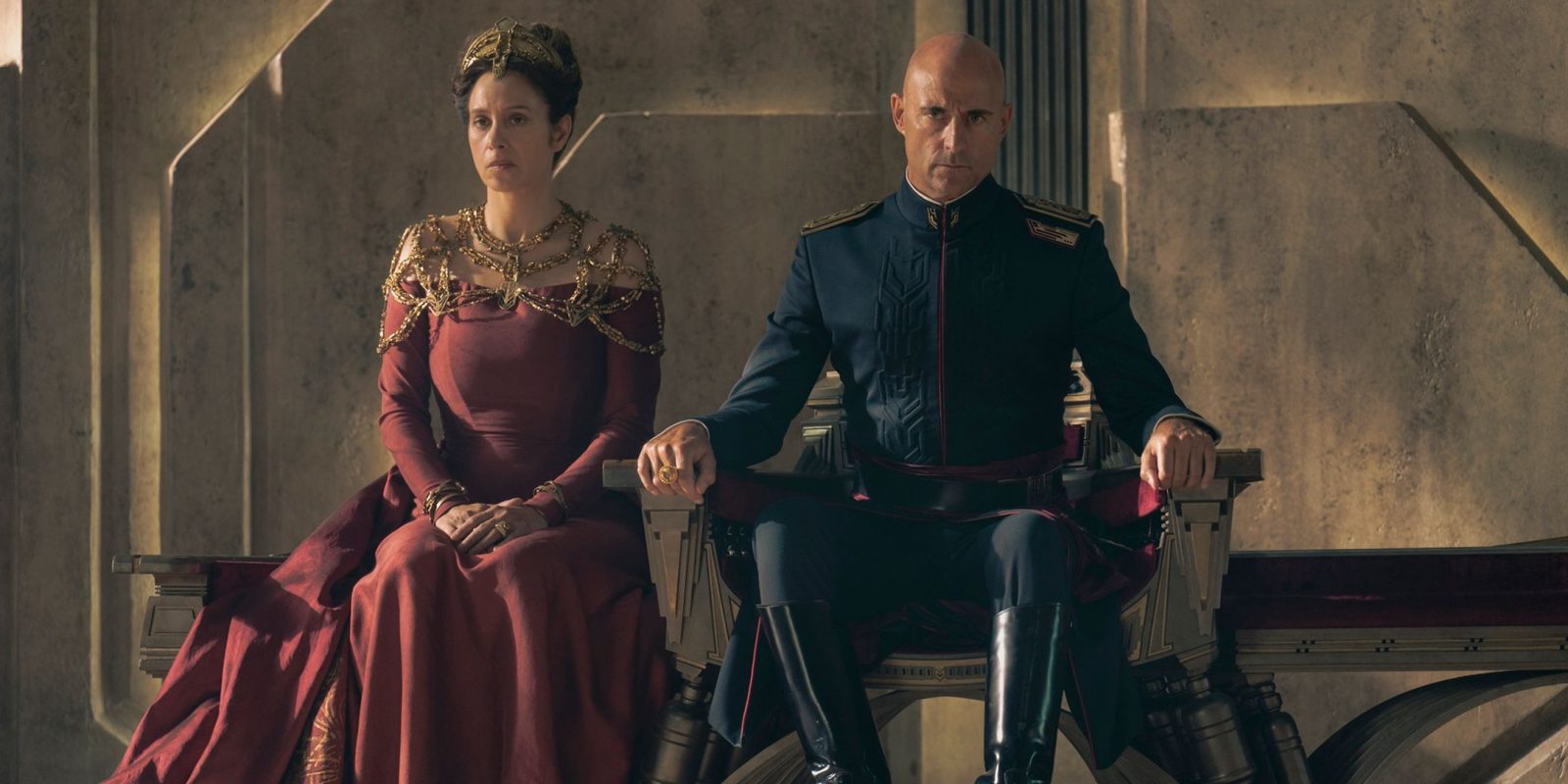

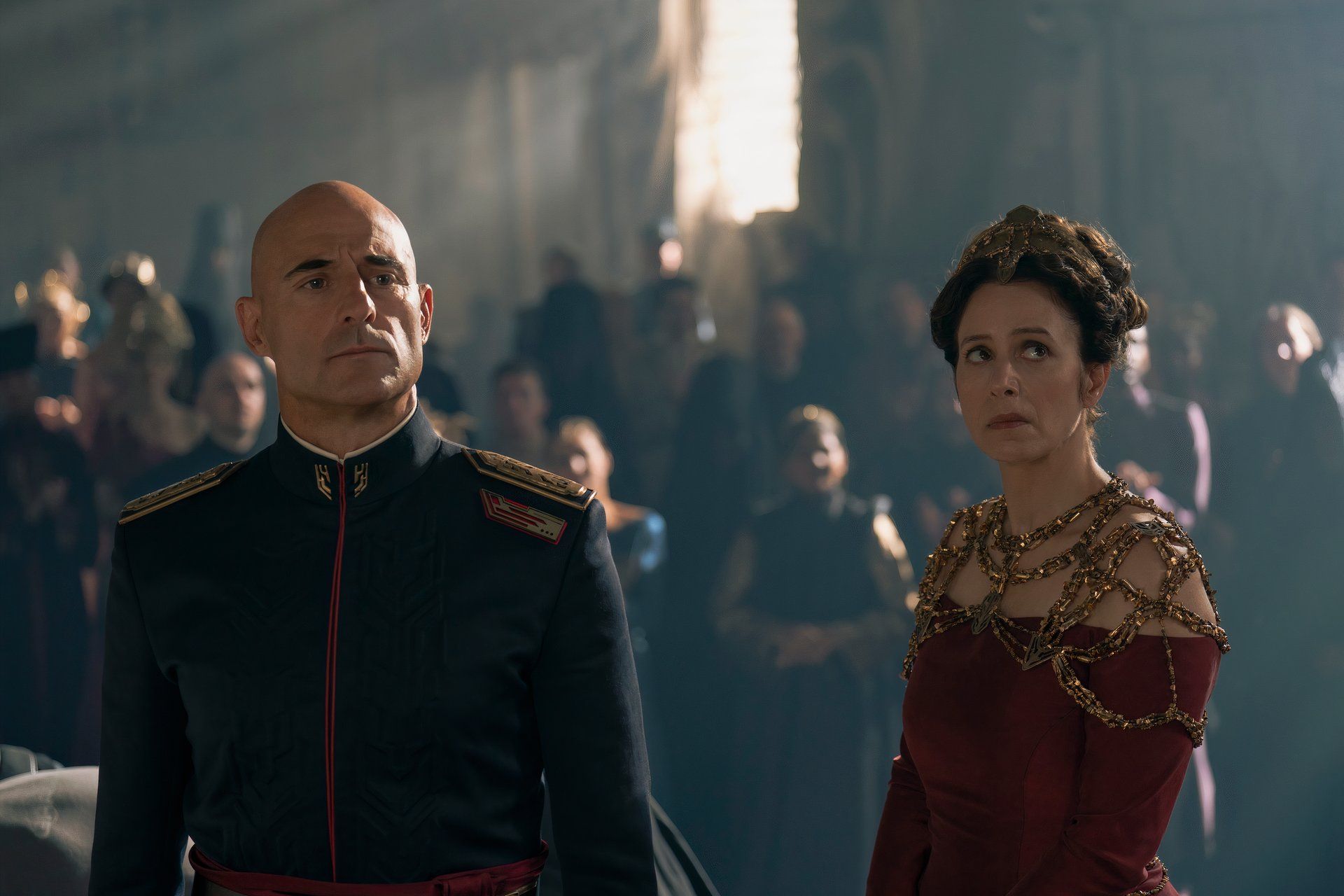
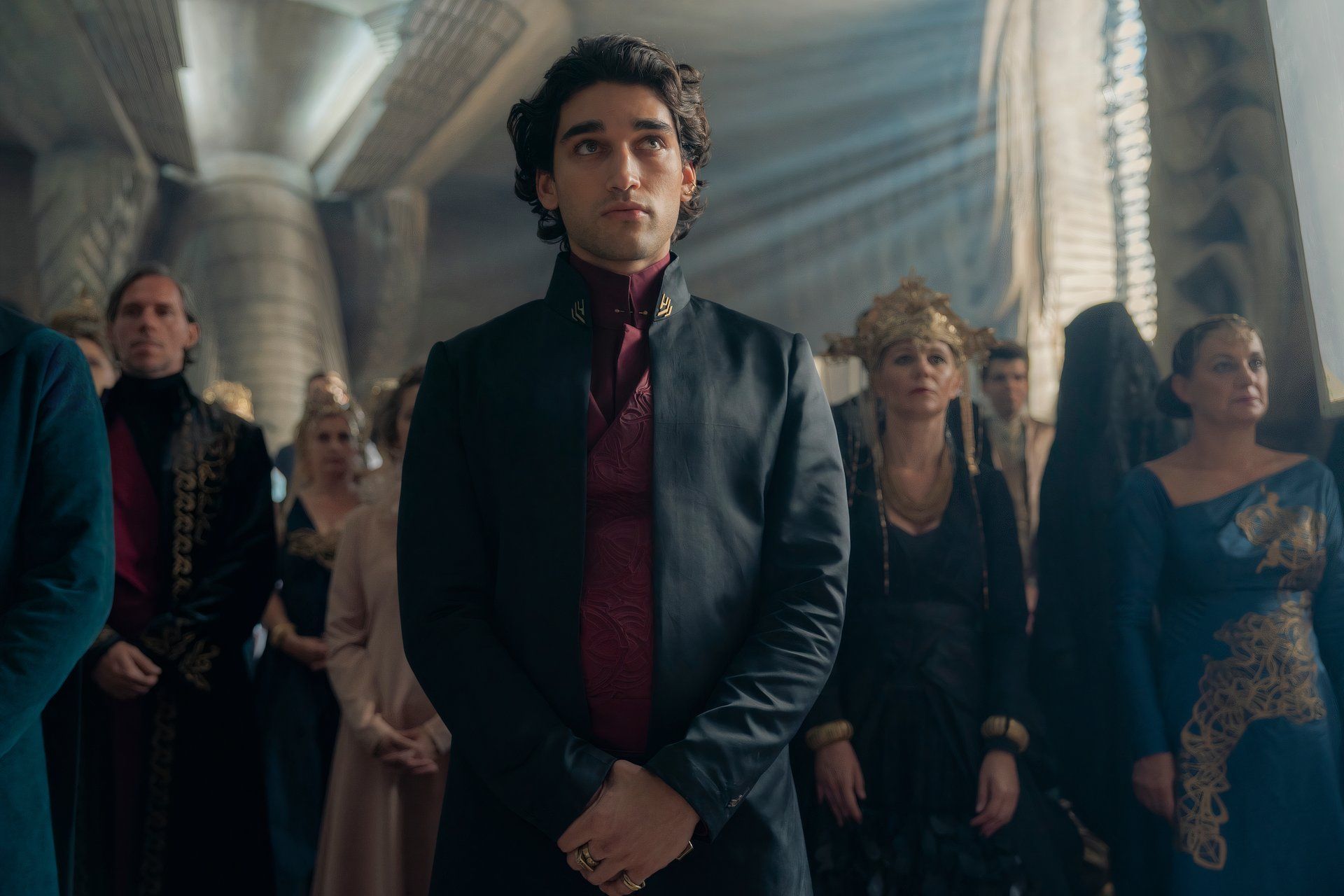
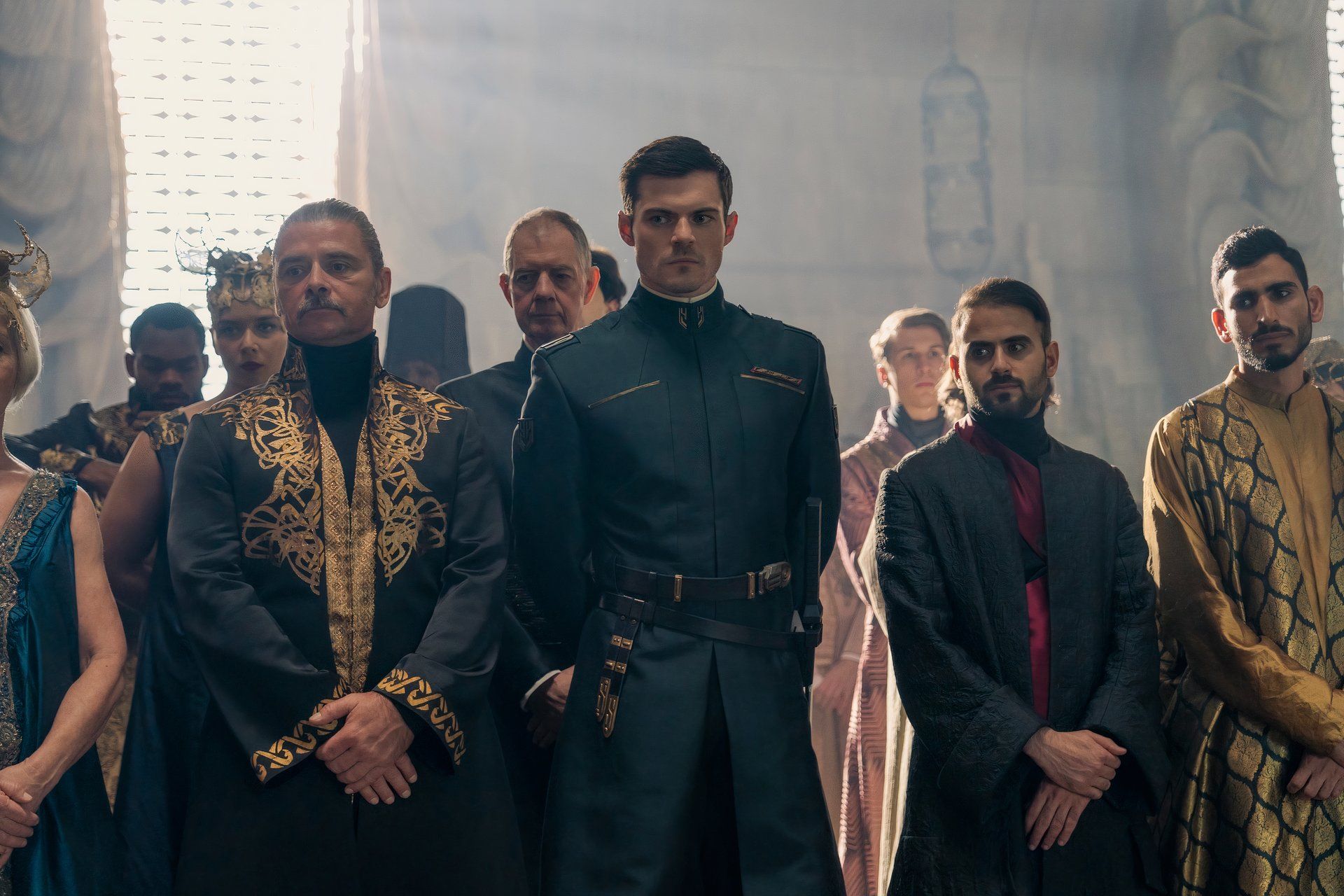
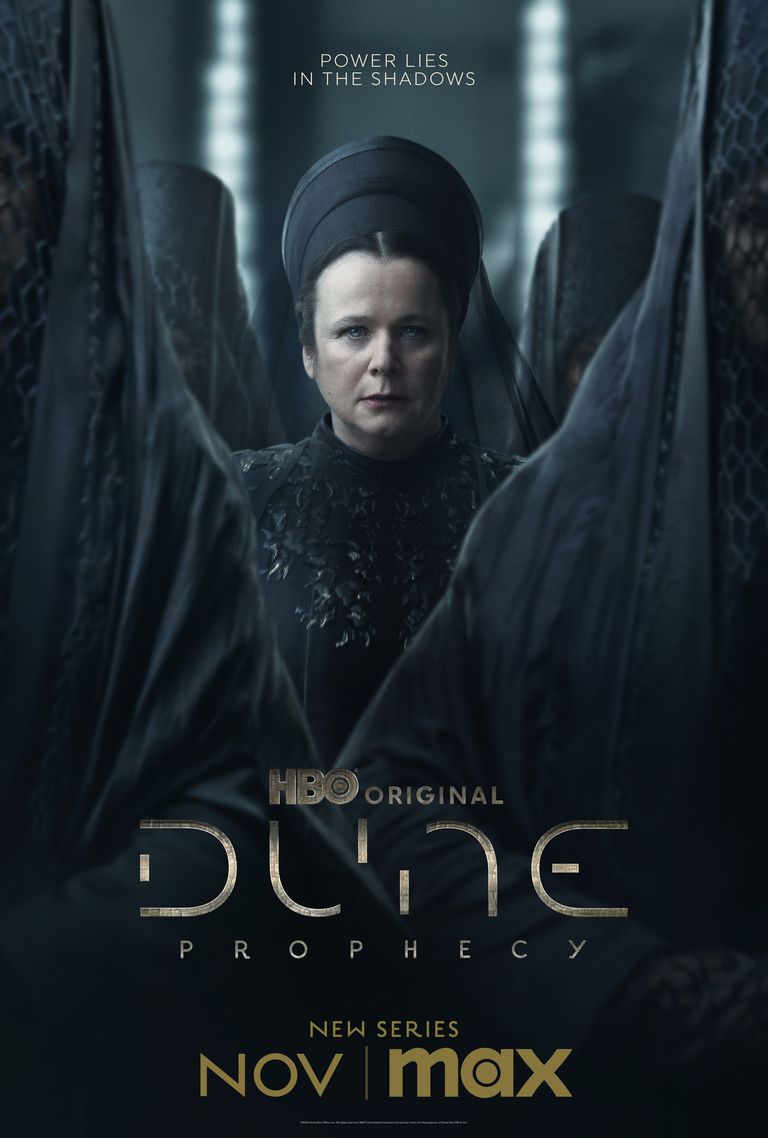


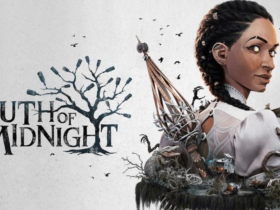



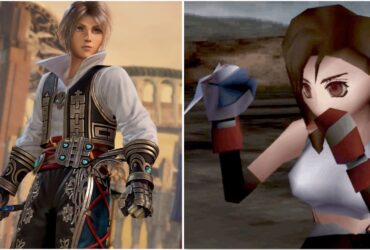

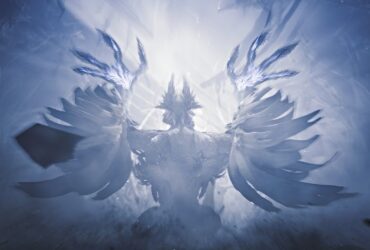

Leave a Reply